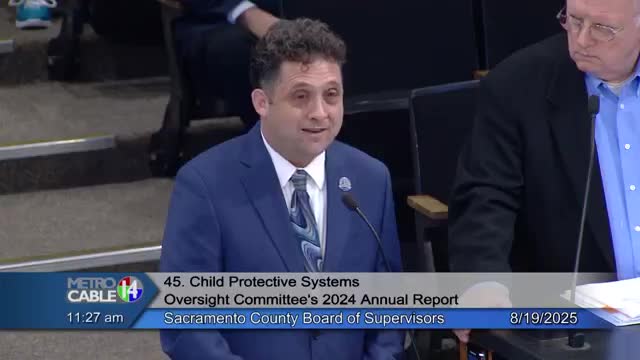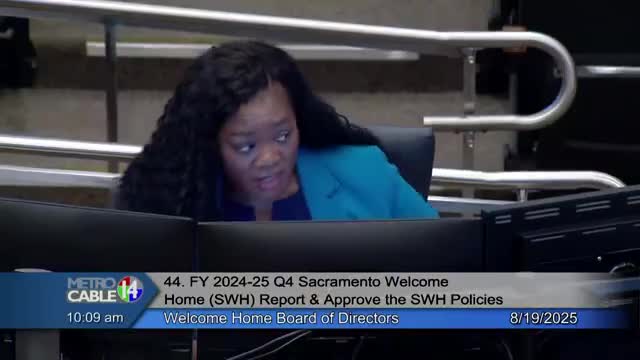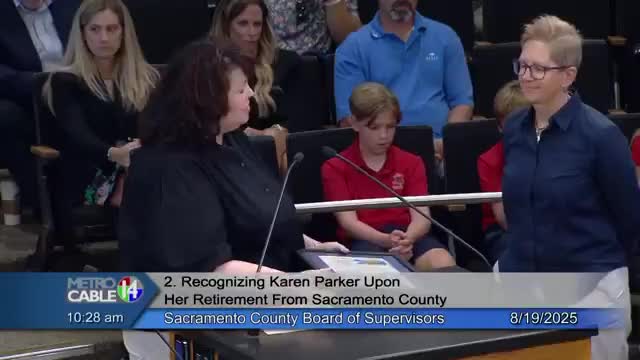Article not found
This article is no longer available. But don't worry—we've gathered other articles that discuss the same topic.

County reports progress under jail health consent decree; calls for more staff as mental-health demand rises

Board adopts Welcome Homes policies as oversight panel flags gaps in child-protection investigations

